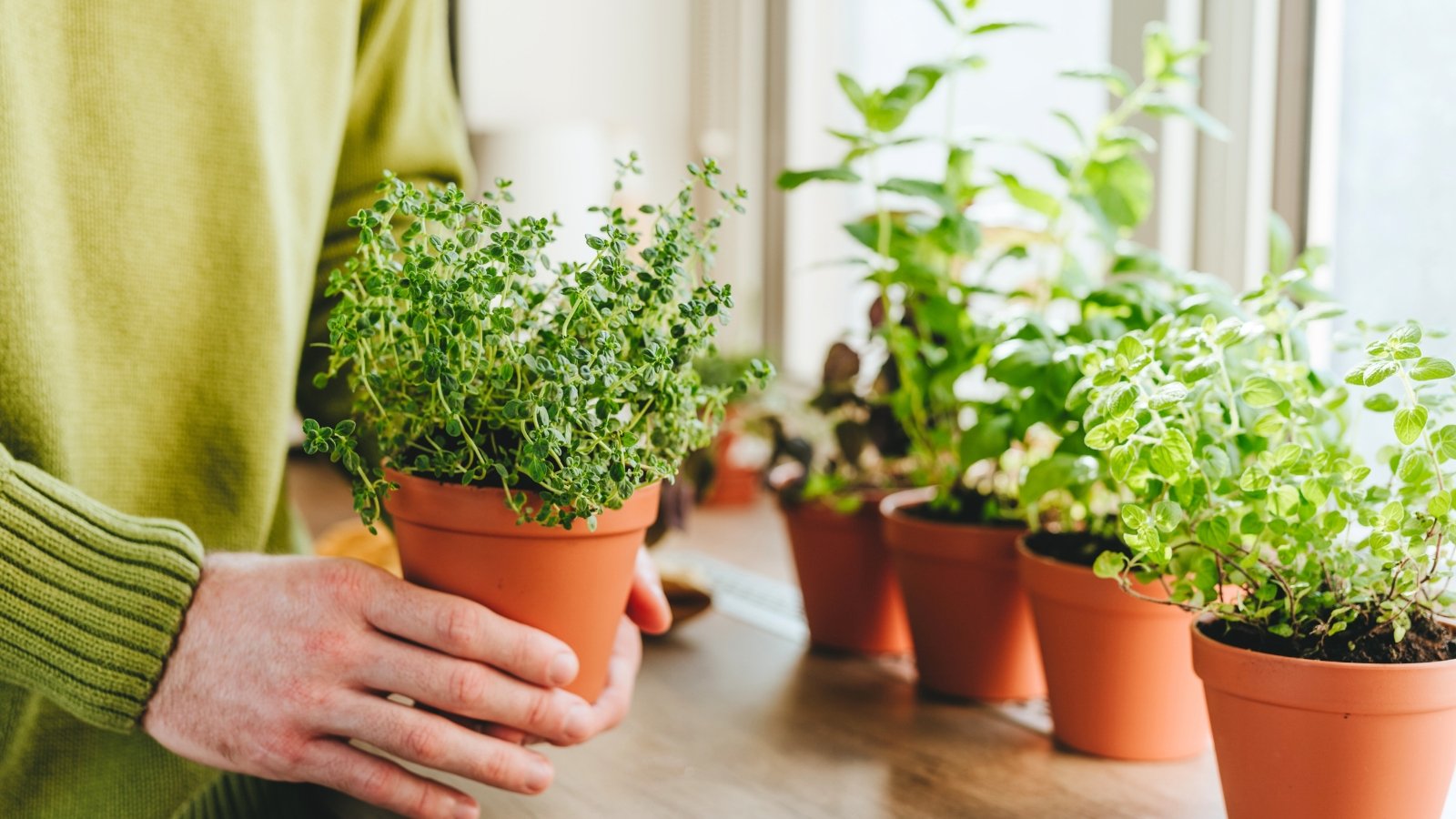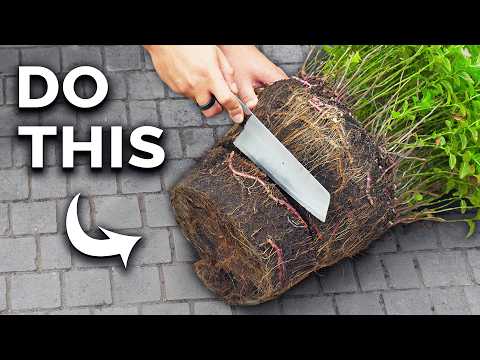[ad_1]
Pure crops have explicit compounds of their leaves that give them distinctive aromas. Contemplate the odor of lavender, a fundamental woody herb. It fills your nostrils with its scent, serving to you retain calm and serene. With indoor pure crops in containers, you’ll have these pleasing scents obtainable anytime.
Not all herbs tolerate the low delicate of indoor environments. They normally need loads of daylight to create tasty flavors and sweet-smelling aromas. A way to help is to reap them generally—this retains them compact, bushy, and low-growing. The extra wholesome your specimens are, the additional leaves they’ll produce. Maintain them in tip-top type for the best-tasting herbs.
All crops need delicate, no matter how tolerant they’re of low delicate conditions. Darkish corners, windowless rooms, and closets aren’t excellent in your herbs. The underside-lit scenario you could use is near a window with indirect daylight. Fear not, as we’ll uncover a few herbs to try rising indoors if your individual house has low delicate publicity.
Can Herbs Develop in Low Gentle?
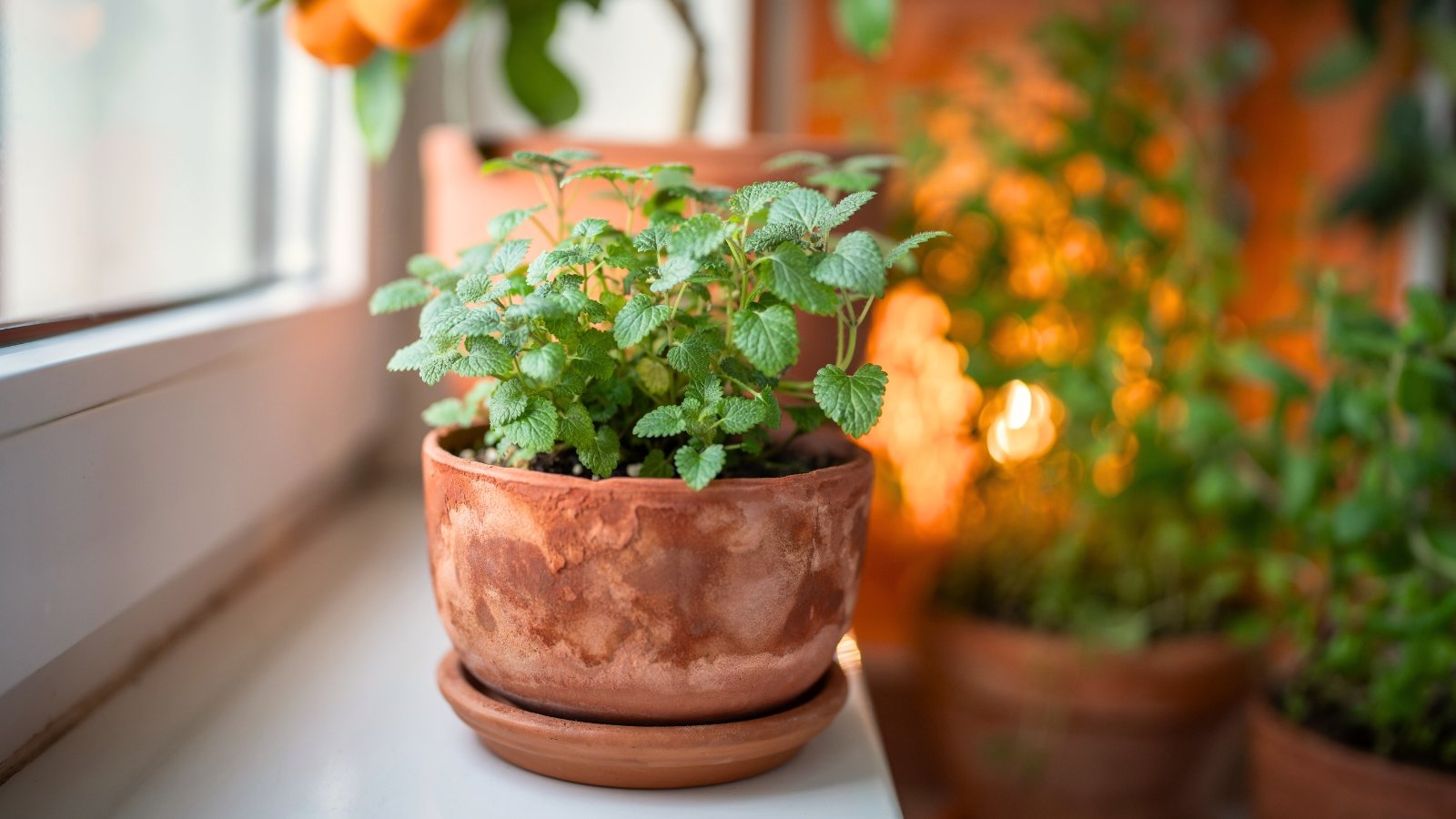

Herbs can develop beneath low delicate, although they’ll need some assist to hold out their best. In case your rising room has no house home windows or outdoor crops block most sunrays, your herbs might admire develop lights to enrich their lighting. Develop lights flip any darkish room proper right into a well-lit indoor yard. They use comparable delicate frequencies as a result of the photo voltaic, creating excellent conditions for crops like mint, culantro, and cilantro.
Set your develop lights on a timer for easy cultivation so that you just gained’t have to point out them on and off every day. Set your timer to twelve hours on and twelve hours off in winter, and depart them on for longer all through spring and summer season. By altering the “on” hours, you simulate outdoor daylengths so your crops develop correctly all 12 months lengthy.
If your individual house has house home windows with vivid indirect delicate, you’re in luck! Some herbs will develop their best with vivid indirect delicate all day, whereas others thrive with further delicate as a lot as full photo voltaic conditions. Give your crops as rather a lot delicate as attainable, and monitor them to verify they’re performing their best. It took me many tries to hunt out excellent locations for my indoor herbs, and it’d take some experimenting to hunt out the proper low delicate spot in your own home.
Low Gentle Tolerant Herbs
Now that everyone knows how rather a lot delicate our herbs need, we’ll switch on to the gratifying part of selecting the proper species! I prefer to advocate choosing herbs you utilize generally, that method you’ll have a mild present in your culinary and tea-making needs.
Peppermint
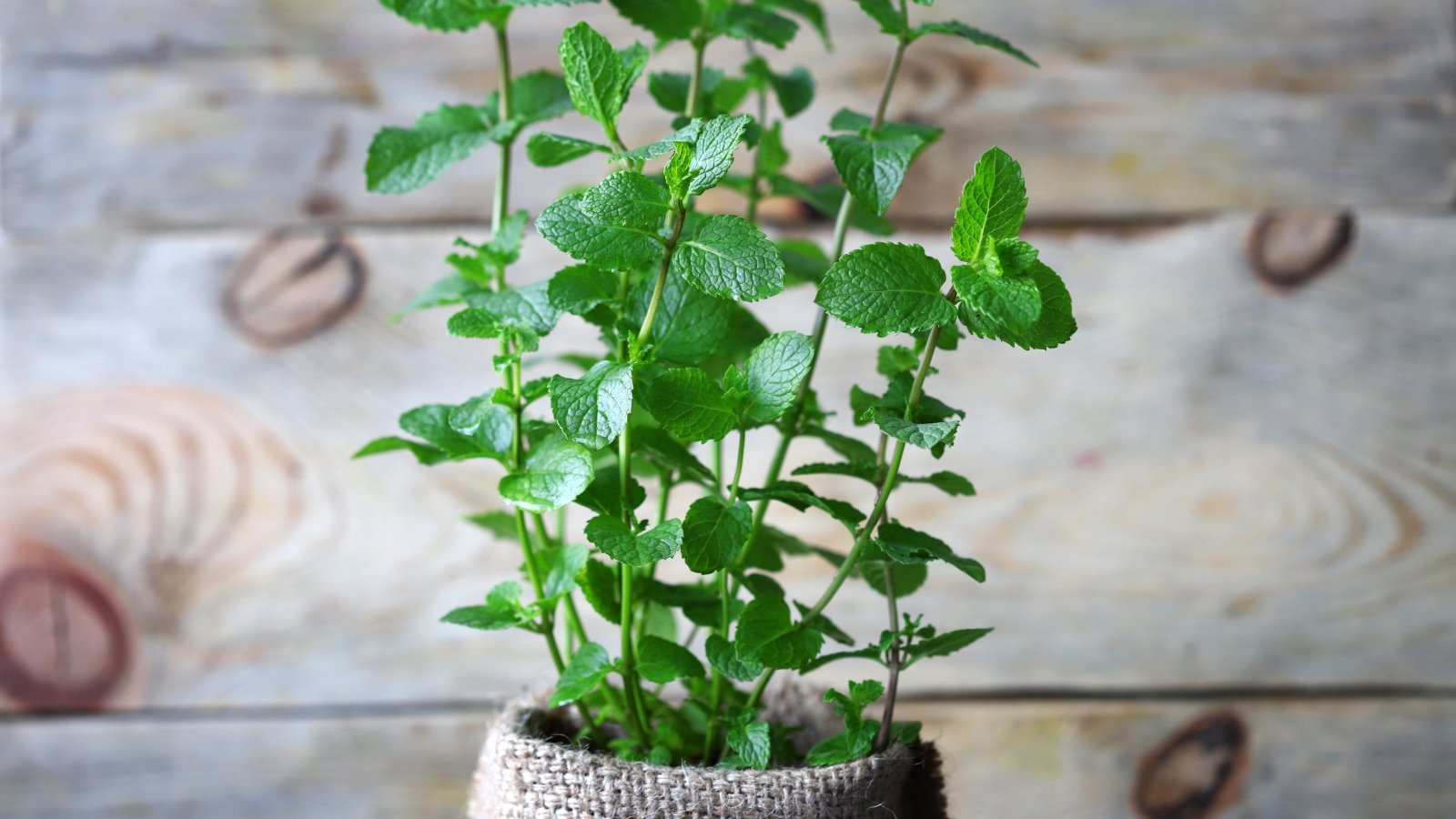

Peppermint fills your nostrils with minty fragrance whilst you cross by it. That’s the well-known mint that flavors candy canes, toothpaste, and tea blends. It tends to be unruly exterior, rising thick underground rhizomes that creep into shut by crops. Develop it indoors in a container and in addition you’ll prohibit its unfold whereas nonetheless having enjoyable with its pure benefits.
Peppermint might develop leggy in terribly low delicate conditions. You’ll uncover extended stems with few leaves, and they also’ll attain for the sunshine. Switch your specimen nearer to the window and prune it once more to help it maintain compact. The additional you pinch its stems, the bushier it’ll grow to be.
Mint is in distinction to most totally different herbs, rising readily from cuttings, divisions, or seeds. Use whichever starting approach is greatest for you and your setup. Merely root cuttings in a glass of water, then up-pot them into containers with soil. Seeds couldn’t develop true to variety, and cuttings or divisions are the surest strategies of propagating clones.
Spearmint
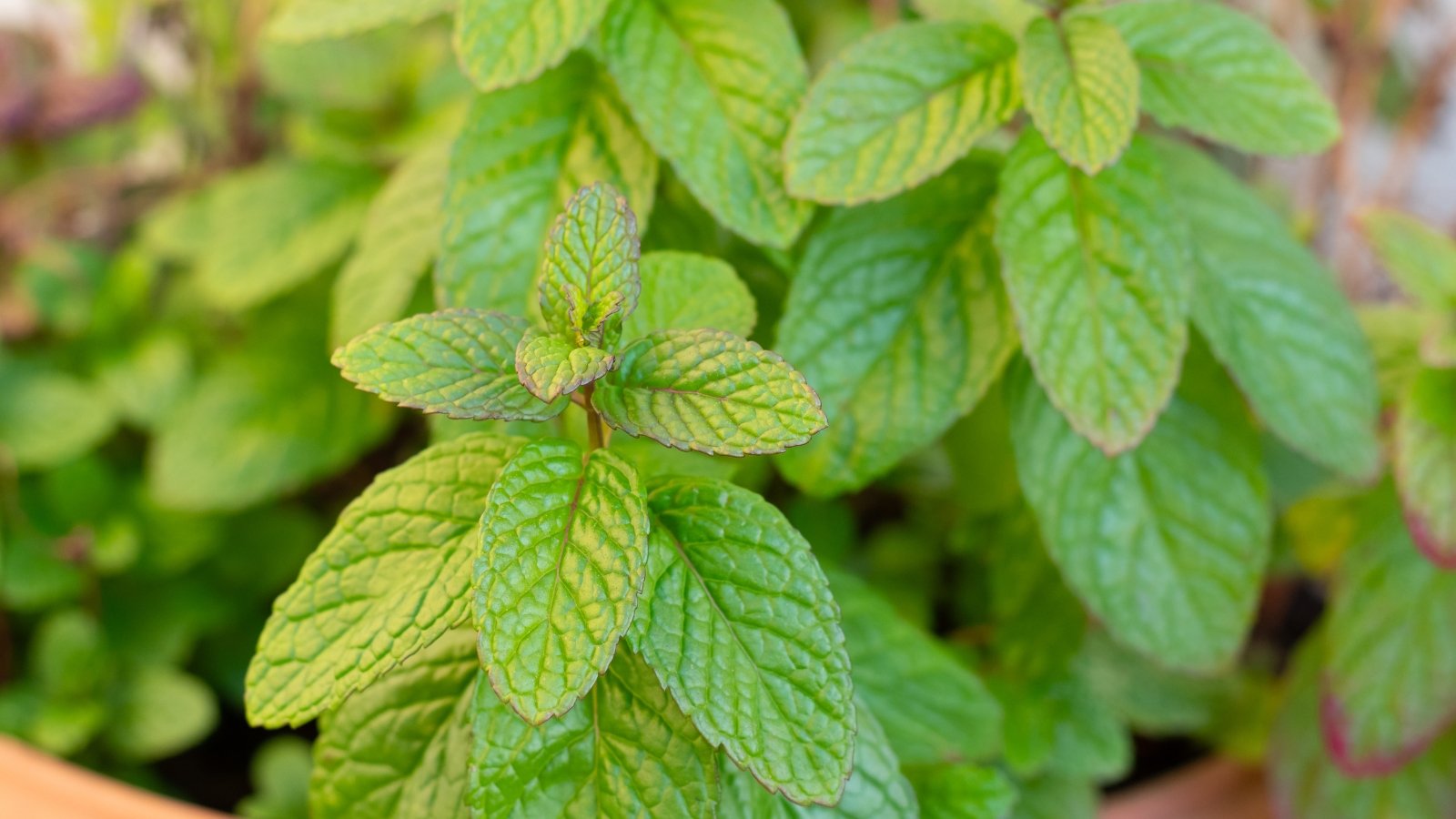

Spearmint is among the many mum or dad crops of the hybrid peppermint! It’s a lot much less cooling than peppermint, although its style is among the many best for all mints. Develop this kind whenever you prefer to make use of this herb in sauces, tabbouleh, or tea blends. Whether or not or not current or dried, it gives off a pleasant aroma that lends superb style to irrespective of you add it to.
Your spearmint might flower in summer season when it grows near a window receiving pure delicate. The blossoms are edible, although they’re lighter tasting than the leaves. Scale back them off sooner than they open so your plant redirects its energy within the course of manufacturing further leaves. It is attainable you may depart the blossoms whenever you’d prefer to make use of them for bouquets, infusions, or tea.
Start spearmint crops from cuttings or divisions, since most mint seedlings gained’t develop like their mum or dad plant. Root cuttings in a water glass, or strip them of their lower leaves and pot them in moist soil. They’ll root after two or further weeks with common publicity to low delicate and moisture.
Chocolate Mint
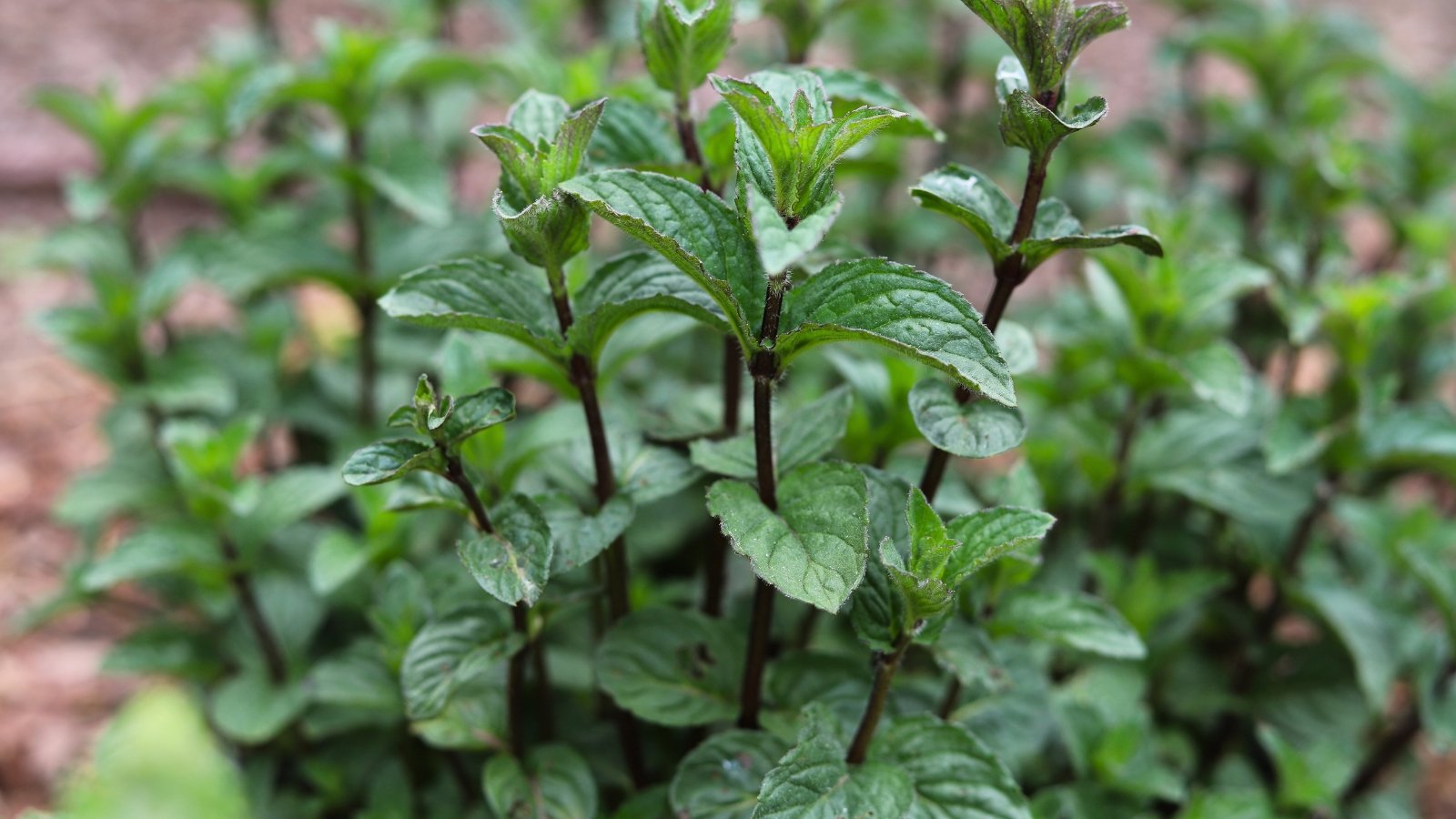

Chocolate lovers ought to try rising this mint! It’s a bergamot mint with a particular chocolate style and aroma. It grows like bergamot mint, with small oval leaves and white-pink blossoms. With an indoor specimen, you’ll have ready chocolate essence in order so as to add to desserts, drinks, and recipes. Place a few leaves in your scorching cocoa for a minty, chocolate combine!
Chocolate mint thrives beneath low delicate conditions exterior so long as it receives between two and 6 hours of direct daylight. When your indoor home has vivid indirect delicate all day, or better than two hours of direct daylight, your specimens will fare correctly. If there’s a lot much less delicate publicity than these conditions, you could have in mind together with develop lights to your setup.
Like all of the yard mints, this kind requires divisions or cuttings to propagate true to variety. Uncover a plant {{that a}} neighbor, pal, or member of the household has to take cuttings or provide potted crops from nursery retailers.
Cat Grass
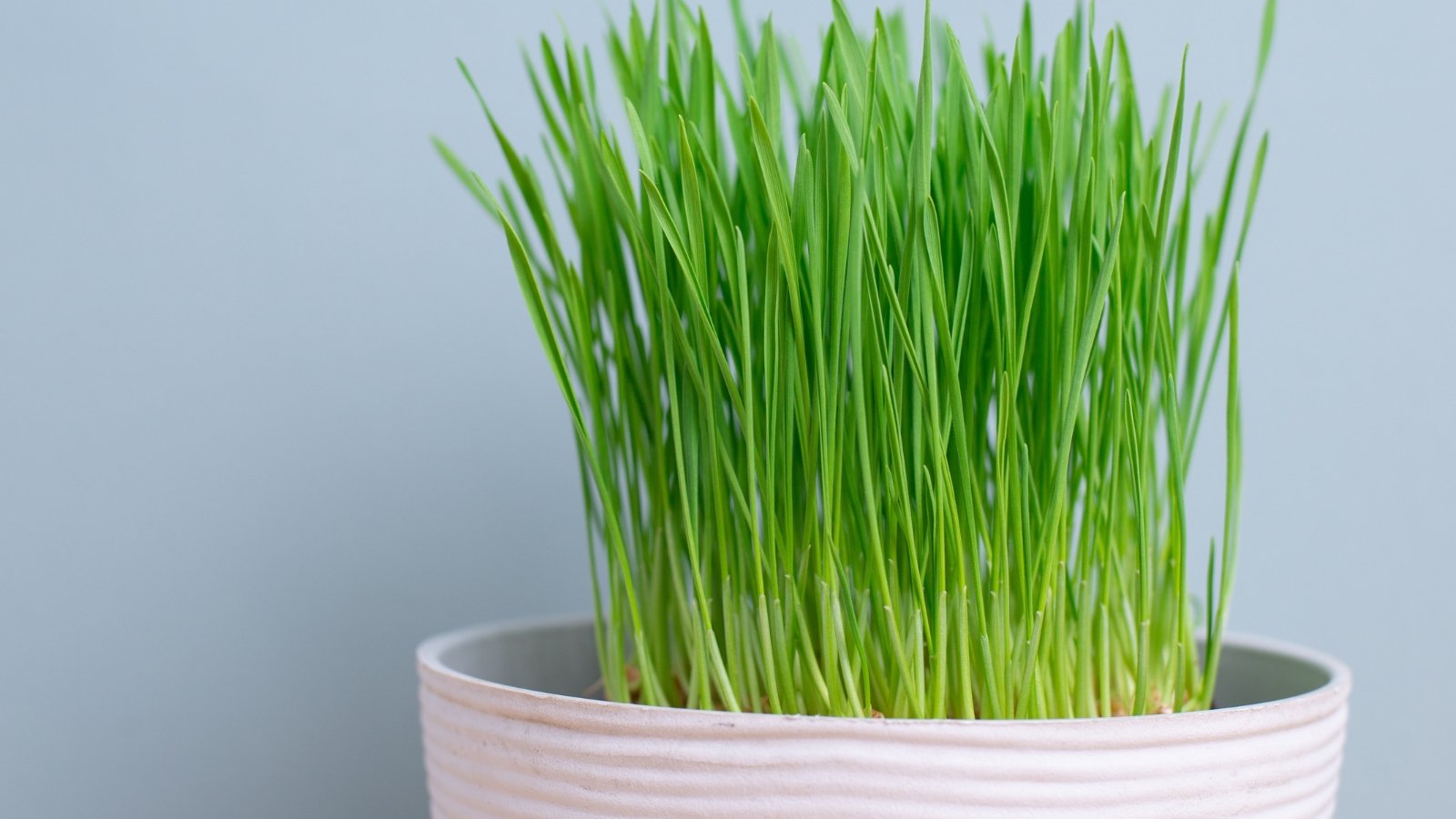

Cat grass is a mixture of oats that sort tender, inexperienced shoots indoors. It’s the correct indoor herb for kitty lovers who must introduce fiber and dietary nutritional vitamins into their pets’ diets. Depart a pot of cat grass spherical your kitties’ meals bowls, and they also’ll start snacking on it all through mealtime.
This herb is good for indoor locations with low delicate, as an extreme quantity of daylight might make the grass develop strong and chewy for kitties. The grass is ready to eat when it reaches two to 4 inches. It is attainable you may trim it if it grows too leggy to encourage further grass shoots.
The best method to have a gentle present of cat grass is to sow seeds every two to three weeks. Use a small container so that you just protect your seed present. After about three weeks, the grass loses energy and struggles indoors. With successive sowings, you’ll not at all run out of current grass in your fur infants.
Frequent Chives
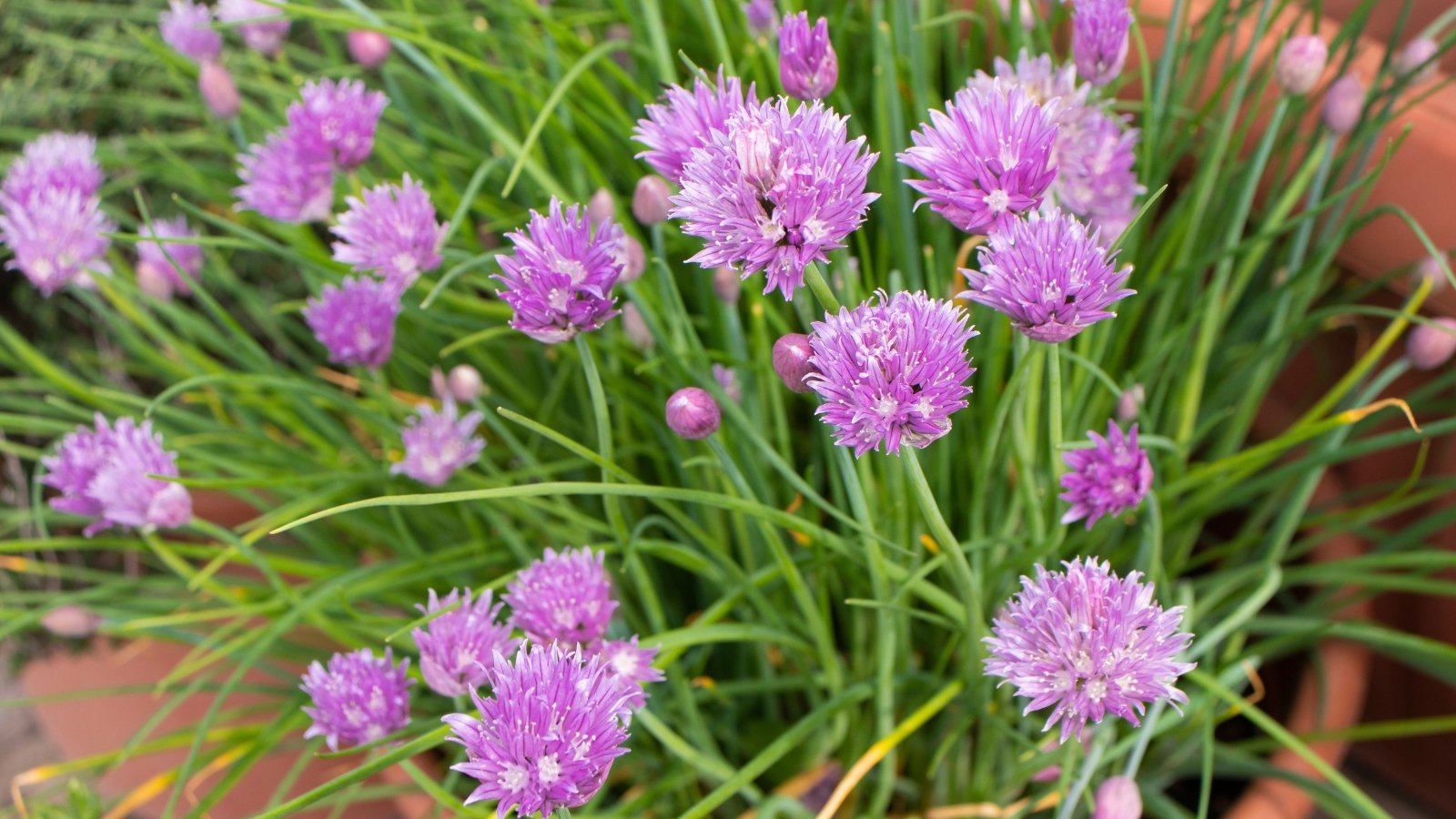

Chives are perennial onions that sort slender, inexperienced shoots. The leaves have a milder style than onions; they’ve the pungent model of onions nonetheless are sweeter with hints of honey. The purple flowers are edible similar to the leaves nonetheless with further sweetness! Develop chives indoors whenever you keep open air of its hardiness fluctuate, or whenever you’d like ready entry to onion style without having to enter the yard.
Because of they’re perennial, you can plant chives seeds as quickly as and have harvestable onion leaves for years. In case your crops develop leggy, lack new shoots, or exhibit yellowing leaves, switch them to a brighter location or add develop lights above them. This can be a great kitchen windowsill herb—it supplies freshness to salads, soups, and dishes like baked potatoes.
Start chives from seeds or dig up a cluster from a close-by plant. Mature specimens variety new bunches near their perimeter with separate roots. Dig them up and divide them from the mother plant, then transplant them into pots with fertile, well-draining potting soil.
Garlic Chives
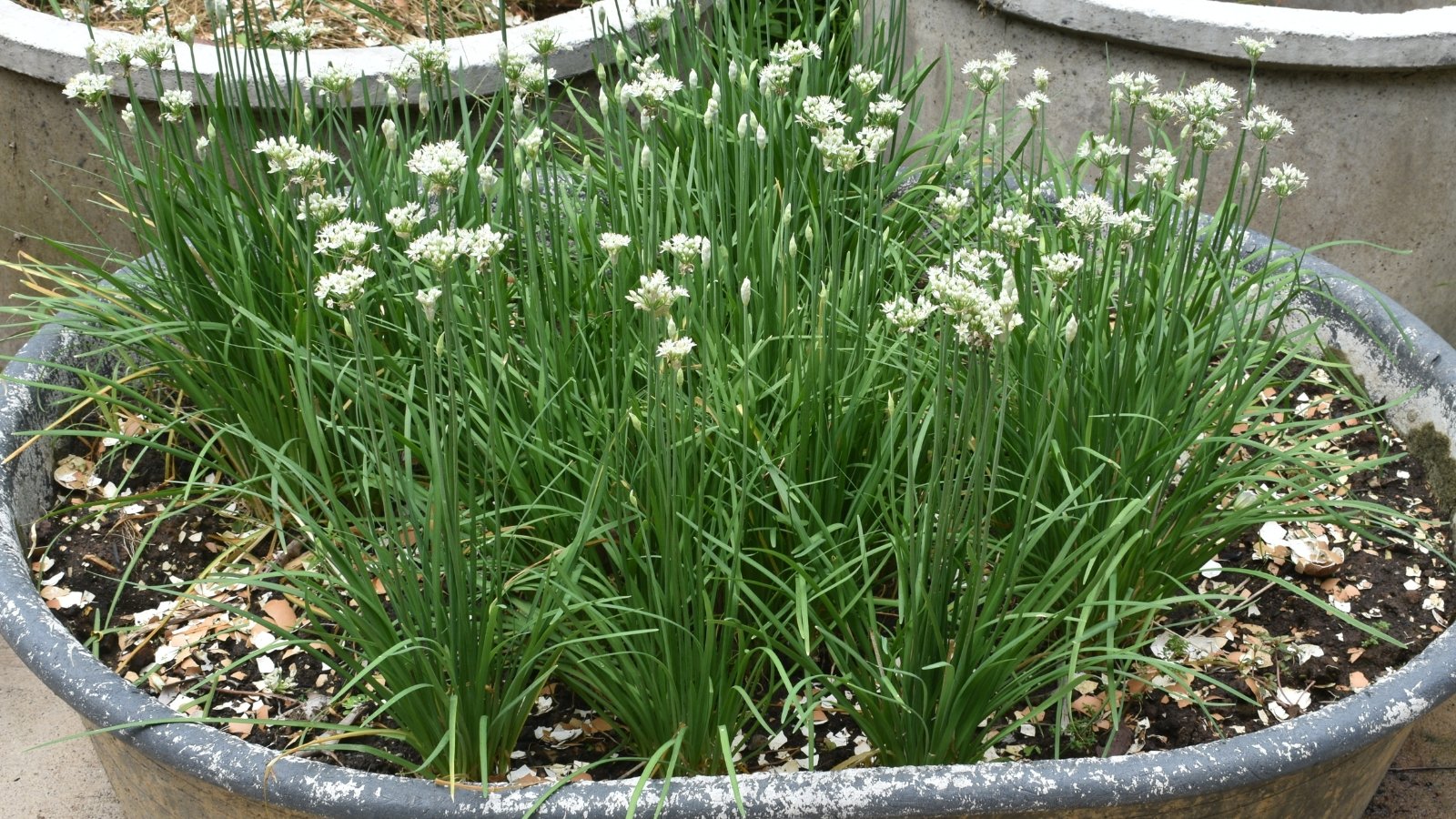

Garlic chives are one different perennial onion with delicious, sweet leaves and flowers. Their flowers are white in its place of lavender-pink and are milder tasting than the leaves. Use the shoots, buds, and flowers current in dishes, or cook dinner dinner them in sautés, scrambles, and stews.
These chives want comparable conditions to those of frequent chives, although they’re further frost and drought-tolerant than their members of the family. Develop them in containers shut to chill house home windows and they also’ll thrive all via the seasons. Use seeds to start out out them, or uncover potted crops obtainable from spring by fall.
Garlic chives sprout their white flowers from spring by summer season, and your plant might bloom if it’s blissful indoors. Take into consideration bringing the container into the yard if it’s warmth and sunny exterior. The blooms attraction to useful pollinating bugs that admire free nectar and pollen!
Parsley
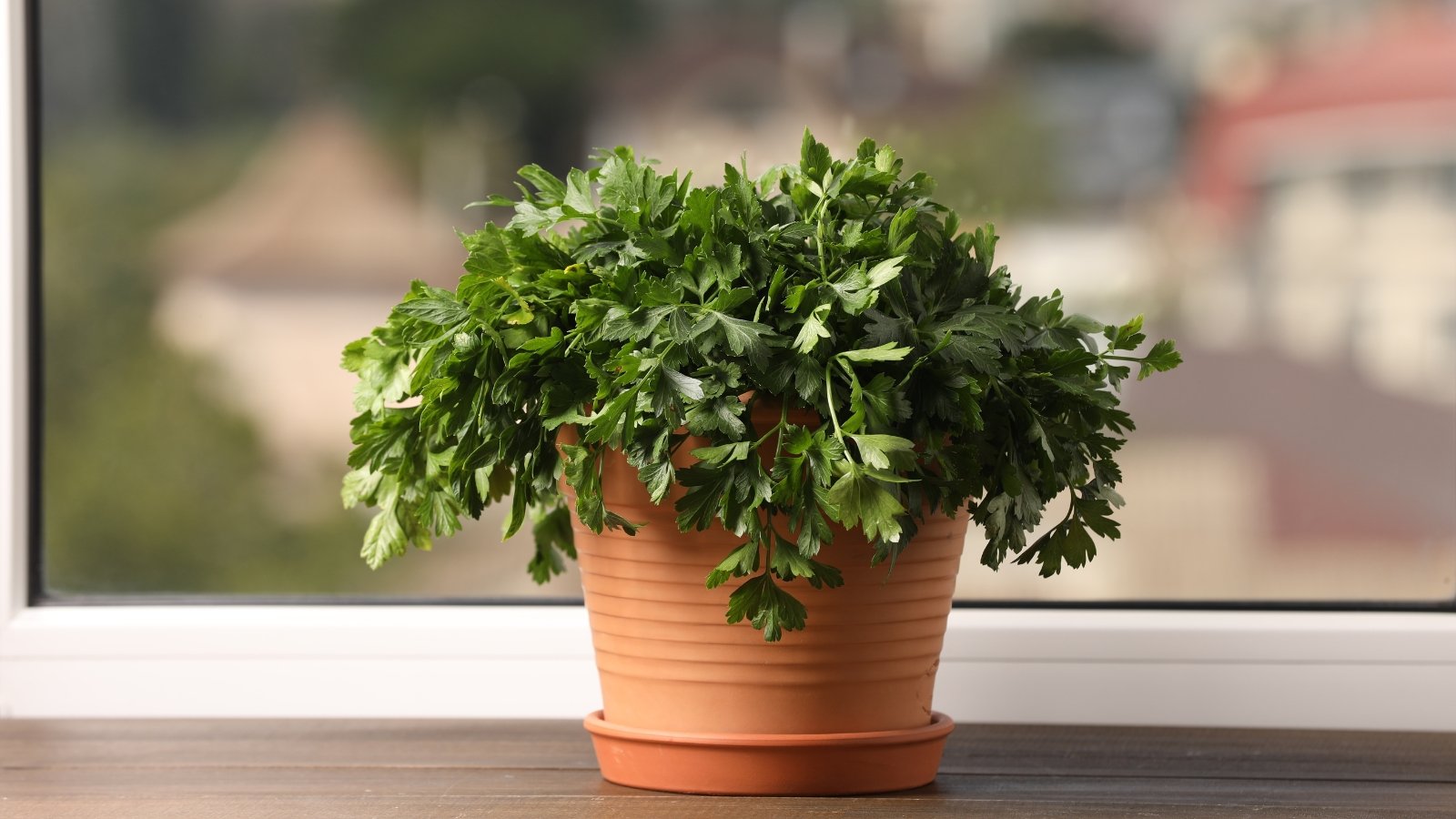

Parsley is an annual herb vital for lots of dishes from plenty of cultures. It supplies a selected style in distinction to a different herb; mud it in tabbouleh, salads, pasta, pizza, and stromboli. Because of it’s an annual herb, it’ll develop merely indoors and be gradual to flower, which suggests you’ll have parsley for longer with out successive sowing.
Indoor parsley might attain for the sunshine if it’s in too darkish of a room. Leggy crops are nonetheless edible, although they’ll be slow-growing. Harvest their outer leaves first and allow the within ones to proceed sprouting and photosynthesizing.
Start parsley from seeds in containers not lower than six to eight inches deep. The seedlings admire fertile, moist soil, nonetheless they’ll rot if it’s soggy. Use the finger test to know how normally to water. Merely place your pointer finger into the pot and see whenever you sense moisture beneath the ground. If it’s moist, preserve off on watering. If it’s dry, water aplenty until it comes out the underside of the pot.
Cilantro
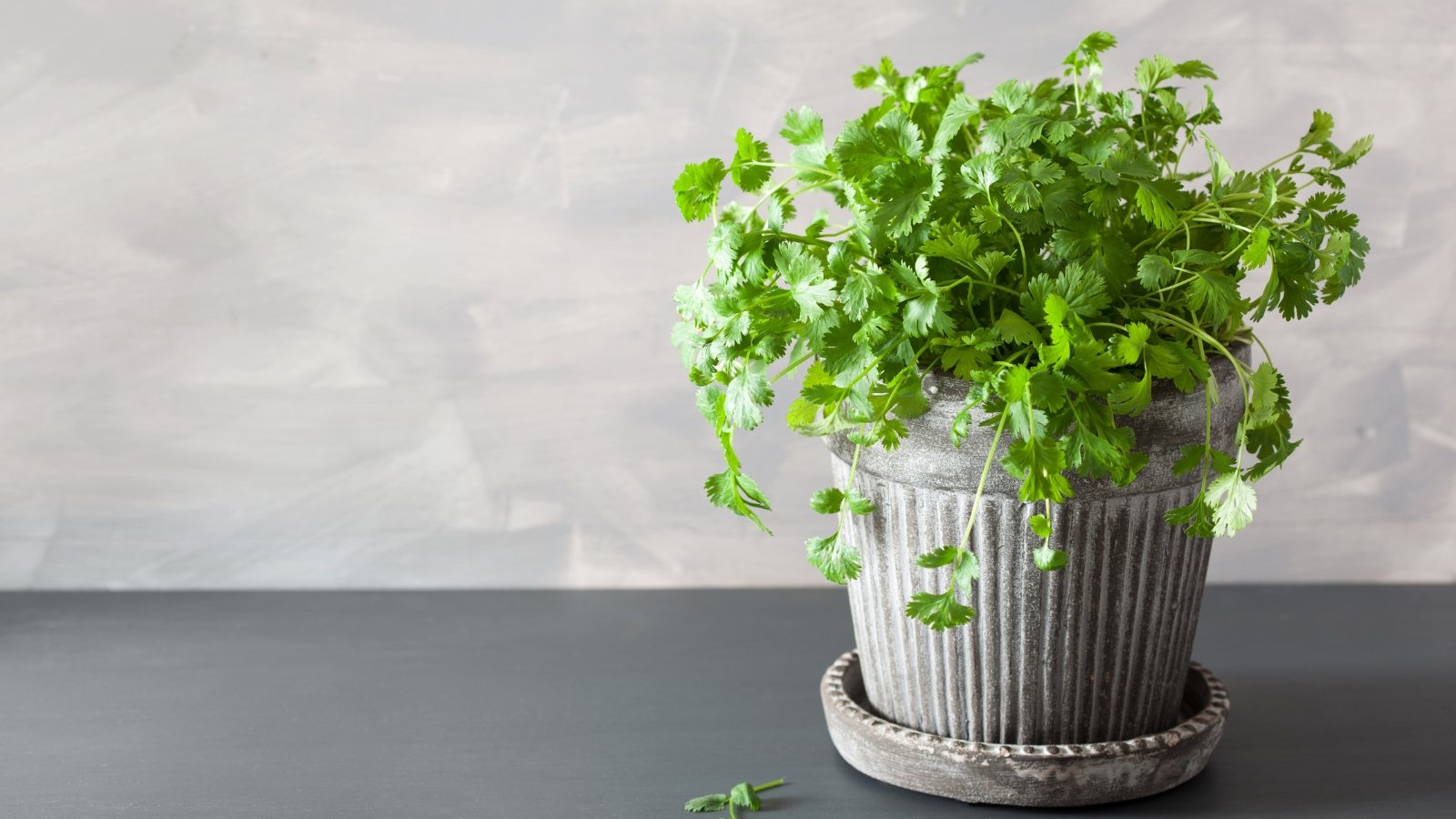

Cilantro, or coriander, is an annual herb that matures equally to parsley. It germinates in light, cool local weather and bolts as quickly because the occasions lengthen and temperatures warmth. The leaves lend a pungent essence current in dishes, and the seeds make the underside spice coriander. Use a slow-bolting choice for foliage, or a quick-bolting one whenever you want the seeds for spice.
Cilantro is an annual that dies after forming seeds. Collect and save these seeds for an limitless present of this herb. They’ll sprout readily when the soil temperature sits between 55-68°F (13-20°C). Maintain their roots moist nonetheless not soggy, and supplies them ample delicate to stay perky, inexperienced, and juicy.
Outdoors cilantro blooms attraction to pollinating bugs like honeybees. Place your flowering specimens open air whereas they bloom, and the bees will pollinate the flowers. After worthwhile pollination, they’ll morph into seeds for easy accumulating. Retailer dry seeds in a cool, darkish location, and they also’ll last a yr or longer.
Culantro
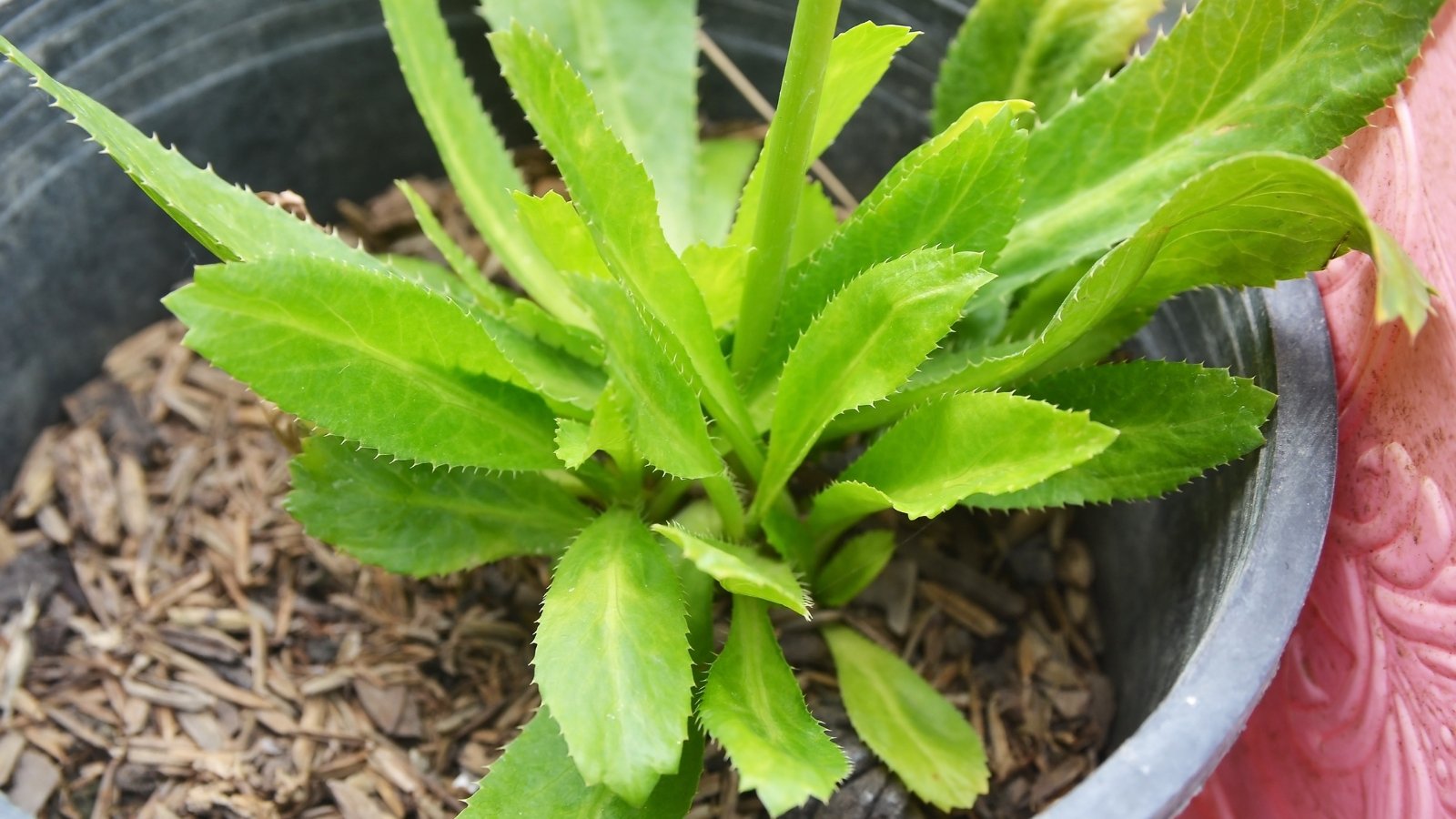

Culantro is an pure different for cilantro with a stronger style and additional cookable building. It resists wilting in soups, stews, and marinades, injecting delicious cilantro-esque essence into your recipes. It’s lower rising than cilantro and varieties a rosette of prolonged leaves with rounded concepts. They’ll ship up flowers with white blossoms in summer season that resemble totally different Eryngium species’ blooms.
Because of culantro tastes stronger than cilantro, you’ll must sub every portion of cilantro for a half portion or a lot much less of culantro. The leaves are strong, and decreasing them finely or mixing them in dishes helps improve their edibility.
Culantro begins readily from seeds and is a short-lived perennial. Develop it indoors for an merely accessible and pungent cilantro-like style, no matter how chilly or scorching it is exterior.
Lemon Balm
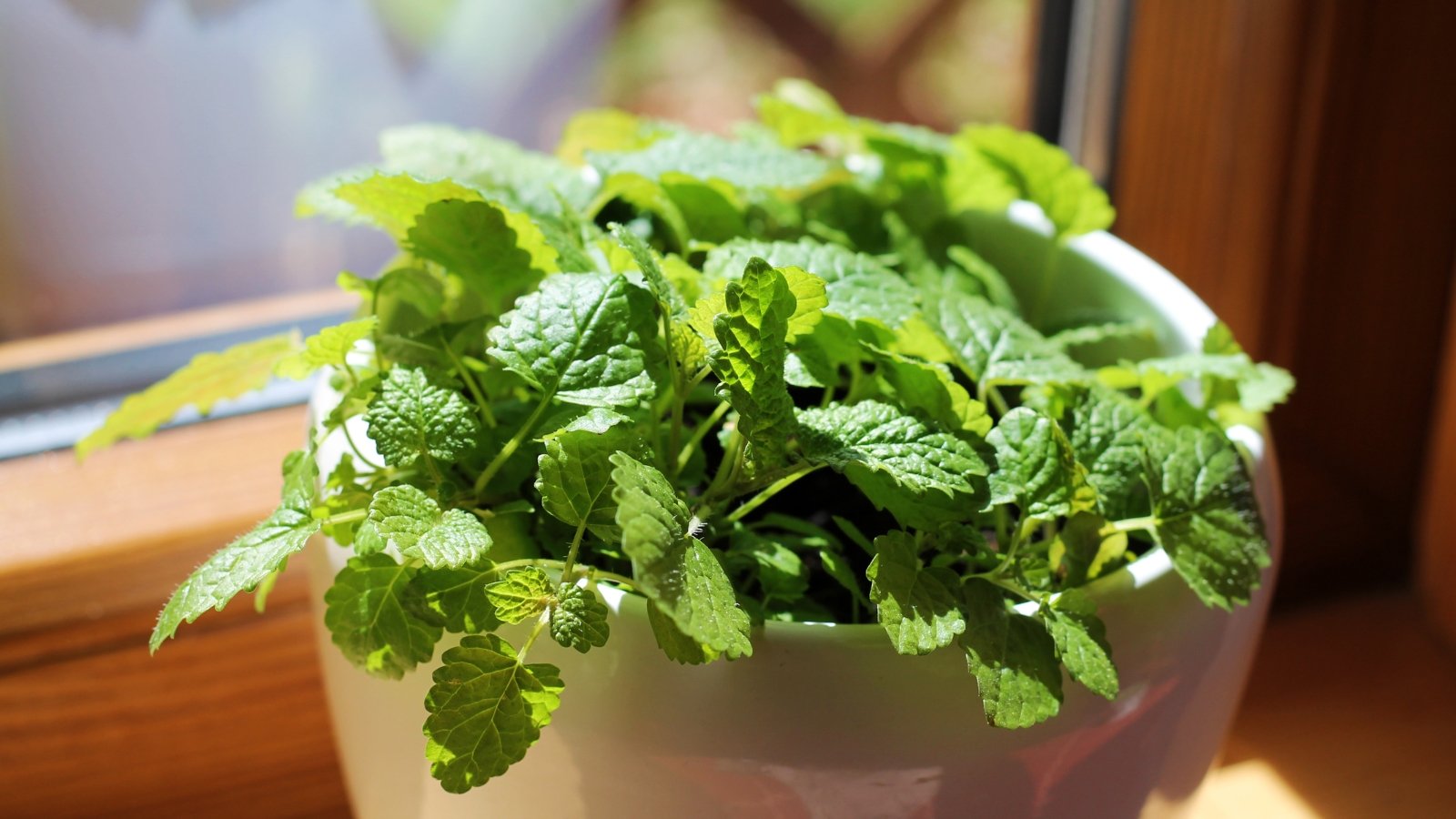

Tea lovers need lemon balm of their lives! This herb sprouts lemony leaves that lend superb pure style to tea blends, syrups, and desserts. The dry leaves preserve onto their fragrance for lots of months in long-term storage, so you can harvest them in fall, and they also’ll last all via winter.
Within the occasion you’d want current lemon balm year-round, develop it indoors in a pot in its place! You’ll have lemony leaves no matter how extreme the local weather is exterior. Lemon balm sprouts rapidly from seeds, which suggests you can have a plant indoors and produce it exterior when it flowers. After worthwhile pollination, purchase and retailer the tiny black seeds as a backup in case your potted specimen dies.
Lemon balm is an aggressive sprouter, sending new shoots from hardy underground roots. Rising it in a planter is sweet for limiting its unfold. You’ll benefit from its scent and magnificence with out having to deal with its unruly invasive nature. Harvest crops by trimming their stems to encourage dense, bushy new improvement.
Chervil
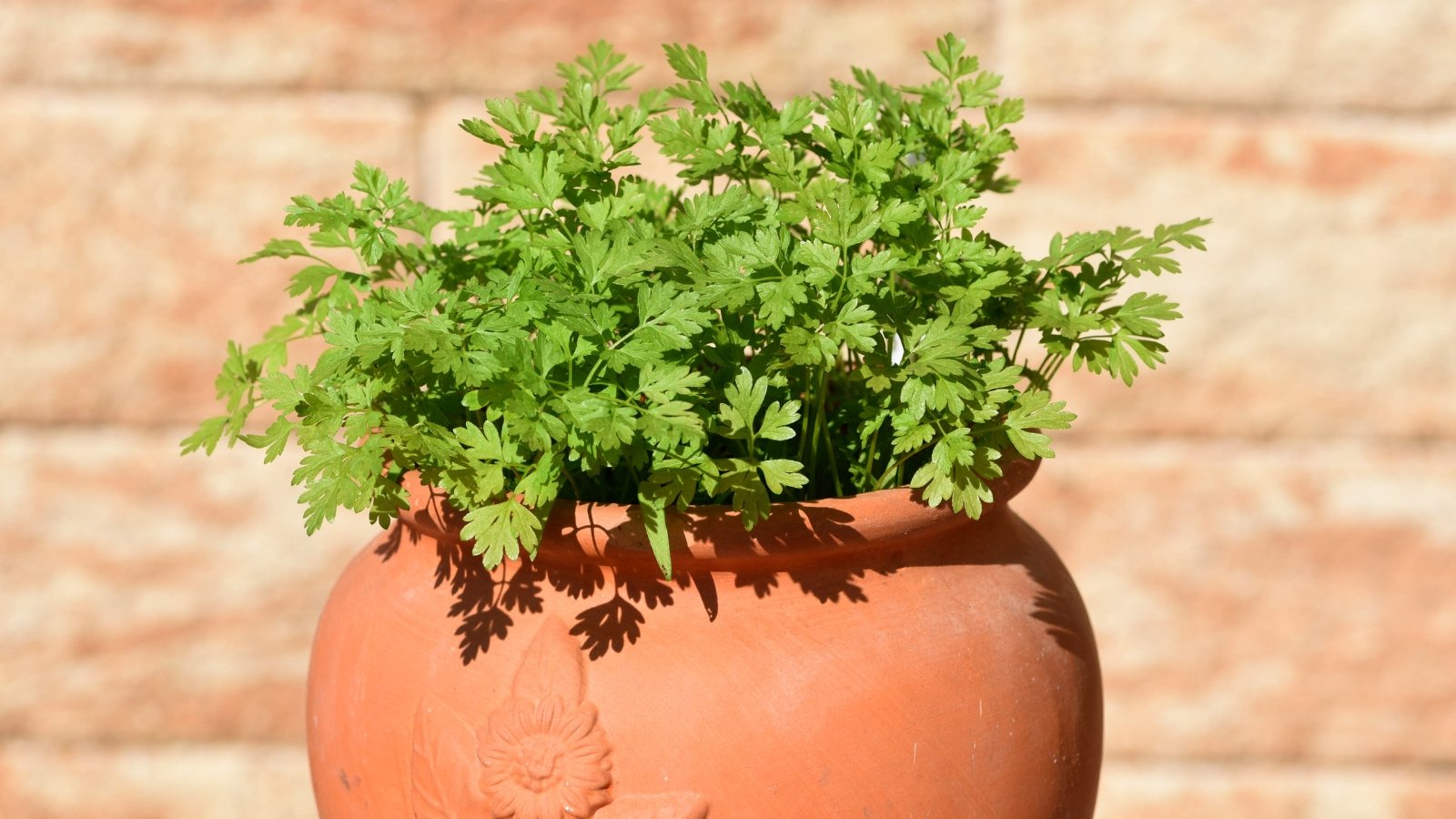

Chervil resembles parsley nonetheless is in a particular genera than the herb. Some growers title it French parsley as a consequence of its comparable look. Develop it as an annual for its current foliage, or let it sprout biennially so you can purchase seeds and sow further seedlings. Indoor chervil will develop a really very long time with out bolting, making it a superb herb in your low delicate yard.
Chervil foliage has a slight hint of licorice style in it with a fragile essence of parsley. It’s excellent for flavoring meats, greens, and roasts. Dry the leaves and they also’ll crumble merely into your meals. In every other case, the current foliage works correctly in butter or oil infusions, scrambles, and pure salads.
Start chervil seedlings from seeds. They need delicate to germinate, so give them direct daylight or develop lights whereas youthful. Older specimens survive in low delicate; within the occasion that they exhibit yellow leaves or gradual improvement, have in mind transferring them to a brighter location. Assure their soil stays moist, not soggy, and they also’ll thrive for lots of months in your own home.
Key Takeaways
- Many herbs survive in low delicate nonetheless thrive with better than two hours of direct sunshine. Maintain an in depth eye in your herbs to verify they maintain pleased with little delicate.
- Low delicate can suggest vivid indirect delicate, two or fewer hours of direct daylight, and artificial lighting from develop lights. Try and match your indoor conditions with the herbs’ hottest pure environments.
- With a lot much less delicate, crops develop slowly and are typically leggier than their outdoor counterparts. Regulate your watering schedule to match their thirst ranges to avoid drowning their roots.
- Within the occasion you’re unsure whether or not or not an herb will develop indoors or battle to survive, try it out! The worst that may happen is it dies after a few weeks and in addition you be taught further about your herbs’ needs.
[ad_2]
Provide hyperlink
